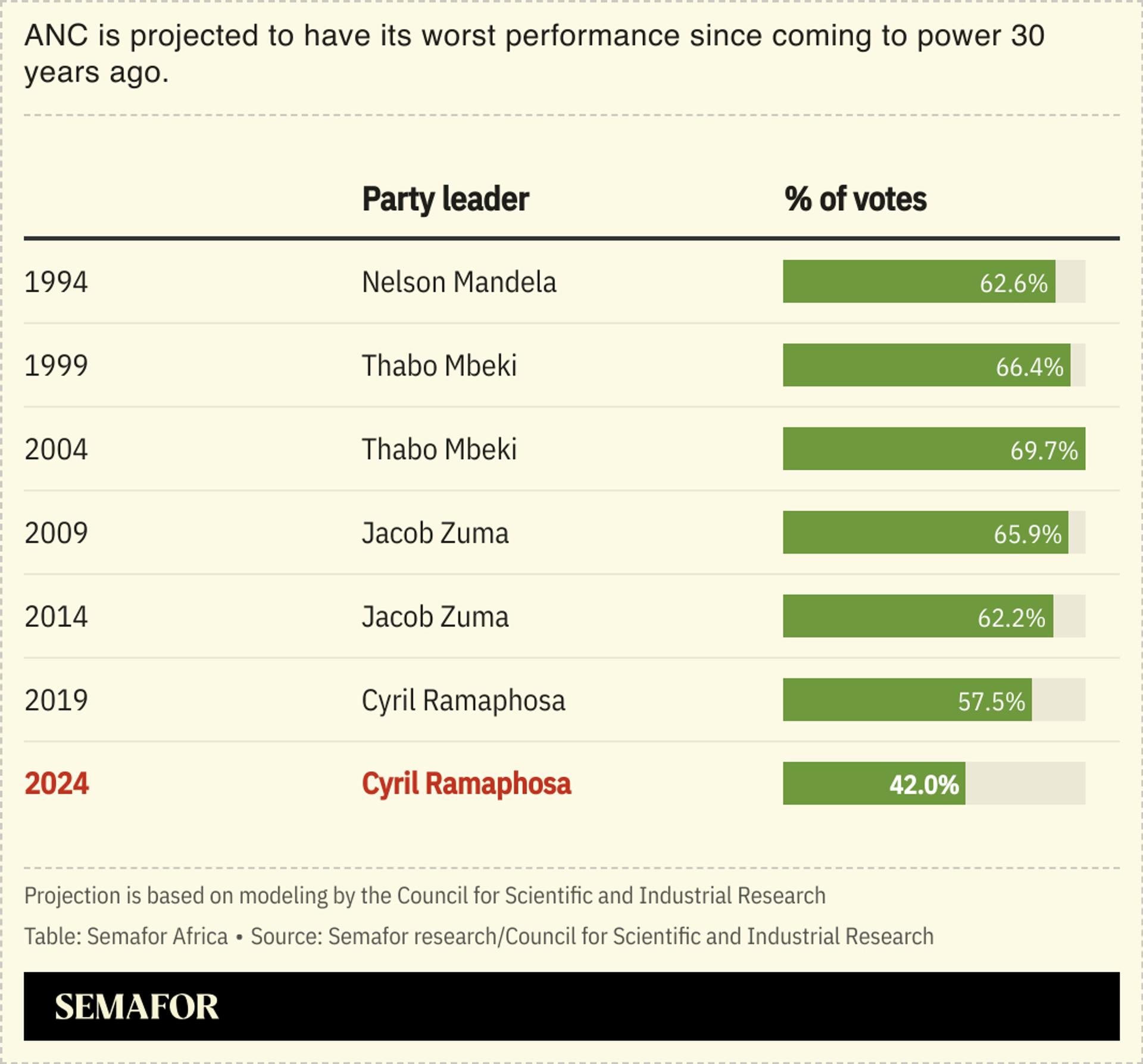The News
JOHANNESBURG — South Africa’s ruling African National Congress looks set to lose its parliamentary majority for the first time since coming to power after the end of apartheid 30 years ago, according to projections based on early election results.
Polls in Wednesday’s election closed at 2100. On Thursday, with results received from 13.9% of polling stations, electoral commission data showed the ANC had secured 42.6% of the vote. The main opposition Democratic Alliance had 25.8% and the leftwing Economic Freedom Fighters (EFF) stood at 8.5%.
Based on early results, the Council for Scientific and Industrial Research, which provides projections to state broadcaster SABC, said the ANC is projected to have roughly 42% of the vote when the count has been completed.
Failure to secure 50% of the 400 seats in the National Assembly would force the ANC — which is still expected to be the largest party — to form a coalition government with smaller parties.
Know More
Under the constitution, the new parliament must convene within 14 days of final results being declared. And parliament’s first act must be to elect the country’s president.
It means there will be up to two weeks of negotiations to form a government if the ruling party has fallen short of a parliamentary majority.
The ANC has won every election since 1994, when Nelson Mandela led the party to power following the end of the apartheid regime.
But the party has seen its support, and share of the vote, fall over the last 30 years. Back in 1994, it won 62.5% of the National Assembly’s seats. At the last election, in 2019, it secured 57.5% of the vote.

The election was fought on the key issues of the economy, power provision, and crime.
The ANC has faced intense competition from dozens of rival parties, particularly the populist uMkhonto weSizwe Party (MK Party) led by former president Jacob Zuma, and the Economic Freedom Fighters, a Marxist party led by a former ANC youth leader that called for the nationalization of mines and expropriation of land.
